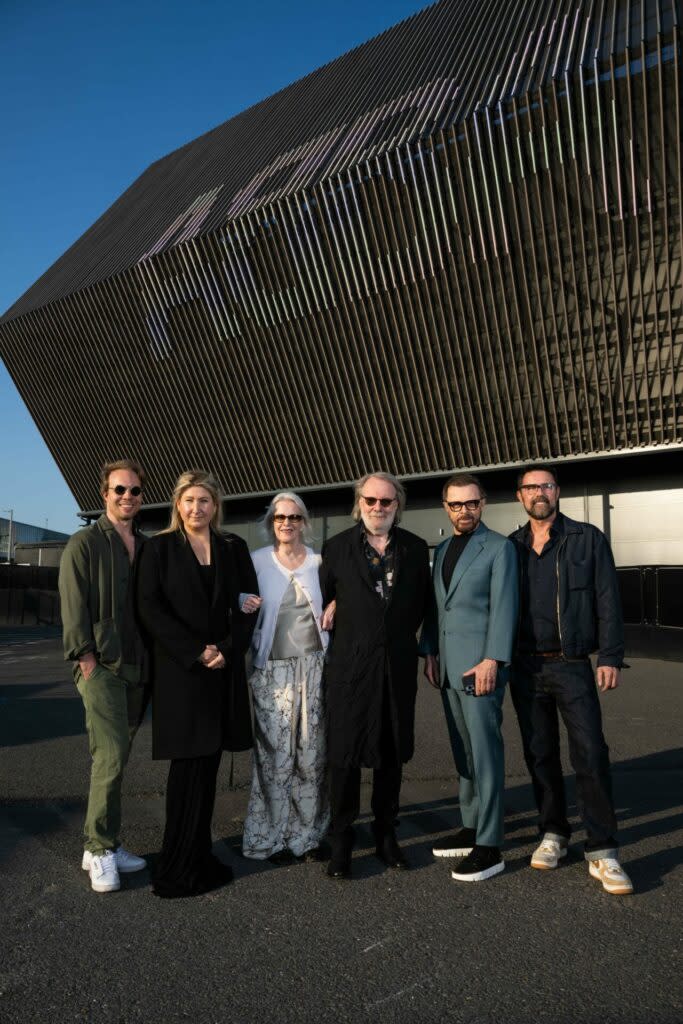Does AI have a place in music? ABBA’s Björn Ulvaeus has his say

As the debate over the role of artificial intelligence (AI) in the future of music continues to rage on, ABBA legend Björn Ulvaeus is the latest high profile face to add his voice to the debate.
Stories about emerging AI technology have become a weekly mainstay in recent months, with many experts emphasising that an AI reality is happening right now, not just one day in the future.
ChatGPT has been writing lyrics, AI has created a viral collaboration between Drake and The Weeknd that doesn’t exist and a Kanye West verse generator, while a ‘lost Oasis’ album emerged, and Liam Gallagher said it was “better than all the other shizzle out there”.
While some fear that it could eventually replace the role of human songwriters altogether, ABBA legend Ulvaeus believes that its power can potentially be harnessed for good.
“In the beginning, I think it [AI] will be a tool,” he recently told Rolling Stone UK.
“I can sort of think of ways of using an AI, like if I was going to write a tango for a musical, I could conceivably train an AI on the 100 best tangos in the world as a starter and then ask the AI to write a tango, having trained from that set. And it could well come up with something that’s not bad and you could tweak it yourself, so that the AI has given you the initial idea. That’s entirely OK and a bit like using our brains, really.”
However, Ulvaeus cautioned that further risks could emerge in the future.
“That’s the first ten years of it and there will come a time when the AI itself can write conceivably original stuff and stuff that people won’t know if it’s come from an AI. That is going to happen,” he reasoned.

“The most important thing right now with democracy at stake and other things is that we need to learn between AIs and humans so that whoever sends a message, there should be a little box somewhere to differentiate between the two. If that could be achieved, it would be a big help.”
Likening the technology to his own musical education, he added: “When I grew up the music I listened to back then created some kind of database and training set inside me that my own AI is working on and whenever I try to come up with something it is based on that training set of data that I have inside and have collected through the years.
“Similarly, you can use an AI like that and some wonderful songs and other pieces might come from it!”
Another prominent voice in the AI debate is Sting, who remained cautious when speaking to Rolling Stone UK at the Ivor Novello Awards last month.
“Songwriters and our rights needed to be protected,” Sting told Rolling Stone UK.
“Especially in light of AI and legislation that may or may not protect us. I don’t think we can be complacent about its dangers or indeed its advantages, but it’s an open question. We can’t not just think about it.”
Amid the fears, Charli XCX, told an altogether different approach. She told Rolling Stone UK and other press outlets that she doesn’t “really care”.
The 30-year-old said: “Maybe that is a very uneducated answer, but I haven’t delved super deep into it. I heard an AI-generated song, it was a collaboration between me and Ava Max and it slapped.
“Personally I’m not really bothered, I’m into the idea of me just being global so have robots make songs… I don’t care.”
Ulvaeus, meanwhile, was speaking to Rolling Stone UK to mark one year of the acclaimed ABBA Voyage. You can read the whole interview here.

 Yahoo News
Yahoo News 
